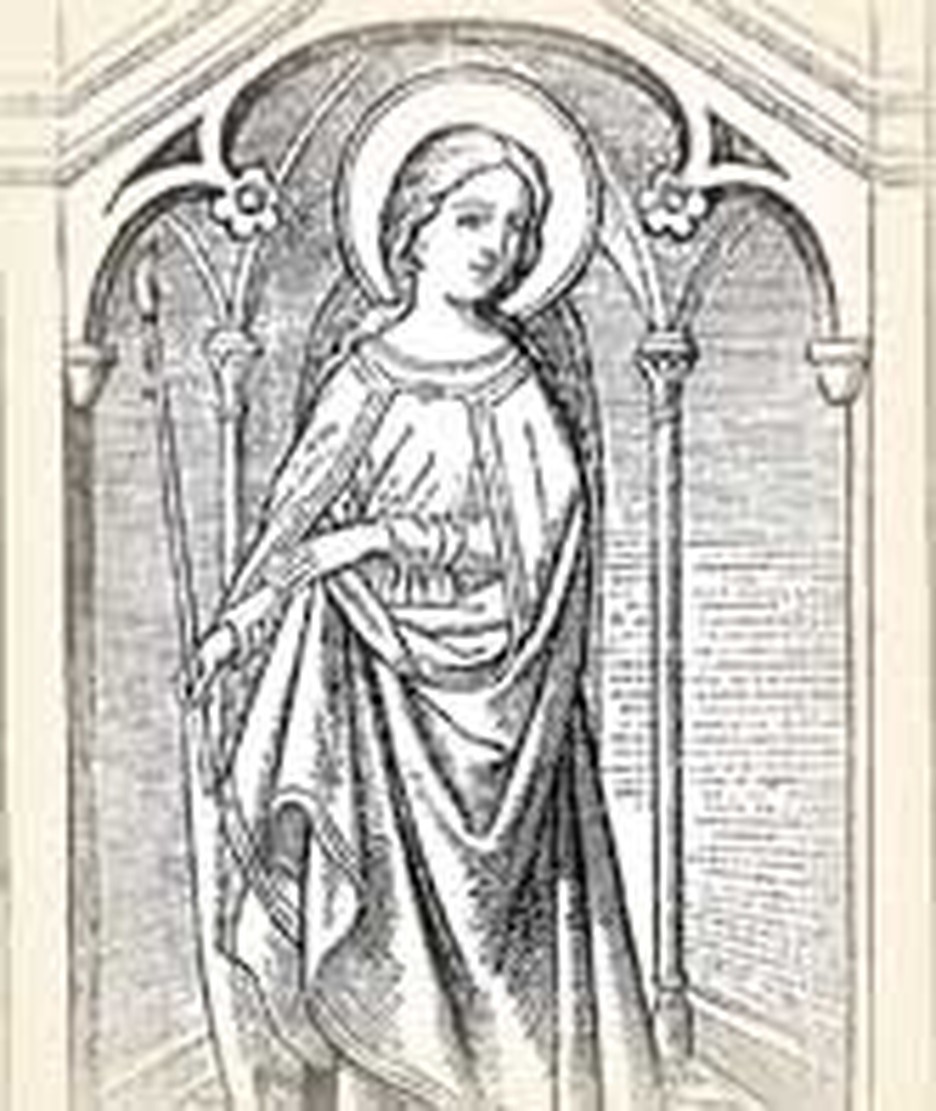
Sometimes its not easy to separate truth from legend, even for lives that are well known. That is the case with Genevieve, the patronness of Paris. Her feast is celebrated on January 3, because she saved her city from danger--twice.
As the story goes, Genevieve was born around 422. She was a sober little girl, the daughter of Severus and Gerontia. Legend says they were peasants but there is reason to believe they may actually have been middle class townfolk.
In 429 St. Germain of Auxerre and St. Lupus of Troyes went from Gaul to Britain to combat the Pelagian heresy. On their way, they stopped near Paris. The whole town turned out to see the holy men. Among them were little Genevieve and her parents. As St. Germain spoke, Genevieve's thoughtful expression caught his eye. He predicted a saintly future for the girl. At her request, he consecrated her to virginity. Before leaving the next morning he pressed a medal, inscribed with a cross, into her hand, bidding her wear it instead of jewelry and precious metals.
Genevieve lived a virgin and practiced severe austerities, such as eating only twice a week. She claimed to see visions and to speak with heaven. Jealous neighbors accused her of hypocricy. They plotted to drown her, but St. Germain intervened.
Twenty-two years after Genevieve's encounter with St. Germain, Atilla the Hun terrified Gaul. He headed directly for Paris. Its inhabitants prepared to flee. Genevieve counselled them to put away their sins, pray, and stand pat. The Parisians listened. Atilla changed course, sweeping down upon Orlçans instead. In Paris Genevieve gained the stature of a prophetess.
According to legend, Genevieve also saved the city during a famine. Somehow she acquired twelve ships full of supplies and relieved the starvation. Her influence when Merowig beseiged Paris caused him to show mercy to the city.
Genevieve inspired the start of work on the church of Saints Peter and Paul before she died in 512. When the church was done, her remains were moved to it. So many people claimed miracles at her tomb that her fame mushroomed. Allegedly it was her intervention from heaven that saved the city from flood in 847. Later a plague, which had killed 14,000 people, ended abruptly while a desperate procession in her honor moved through the city.

.png)
